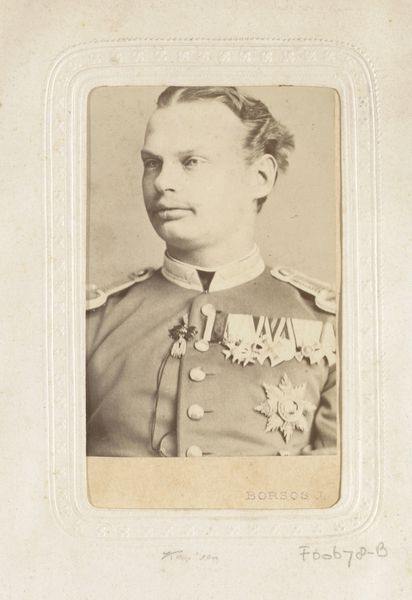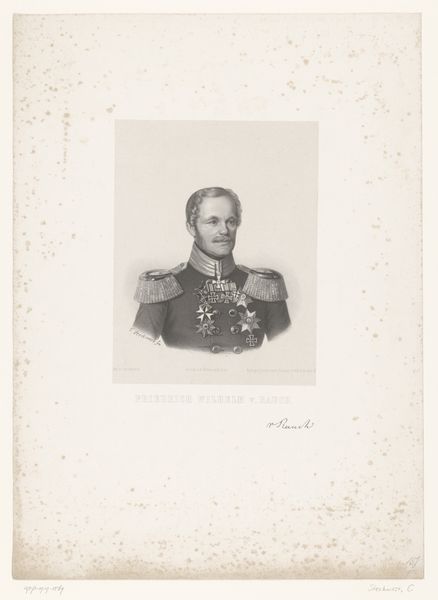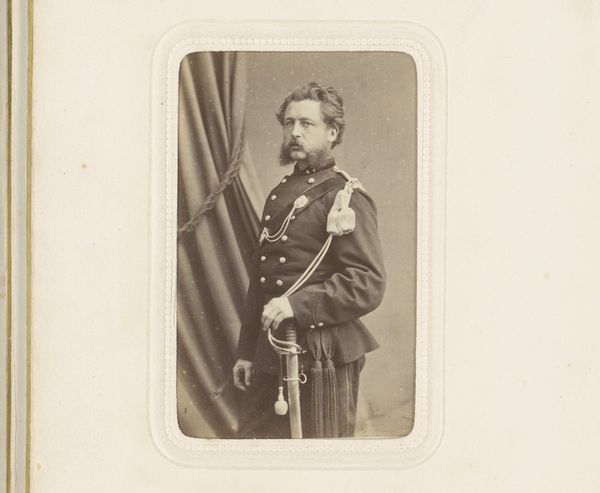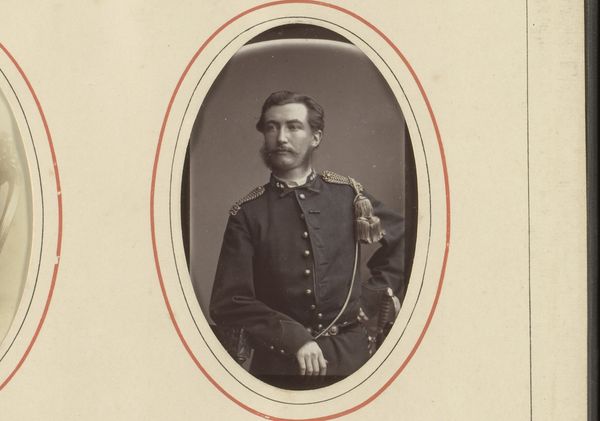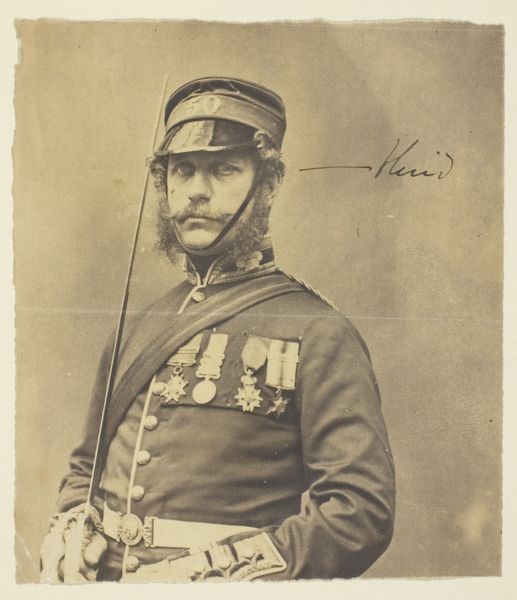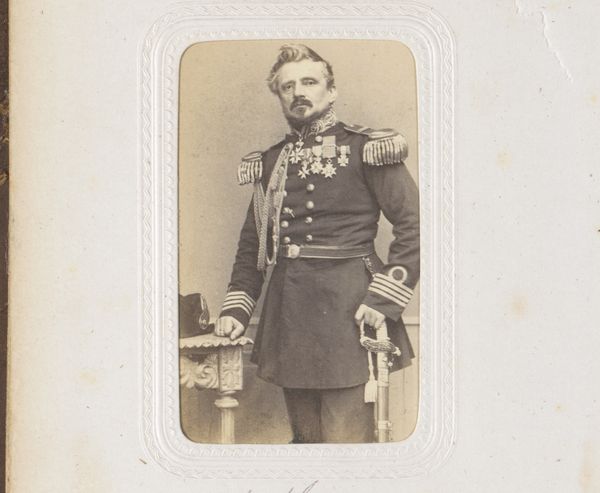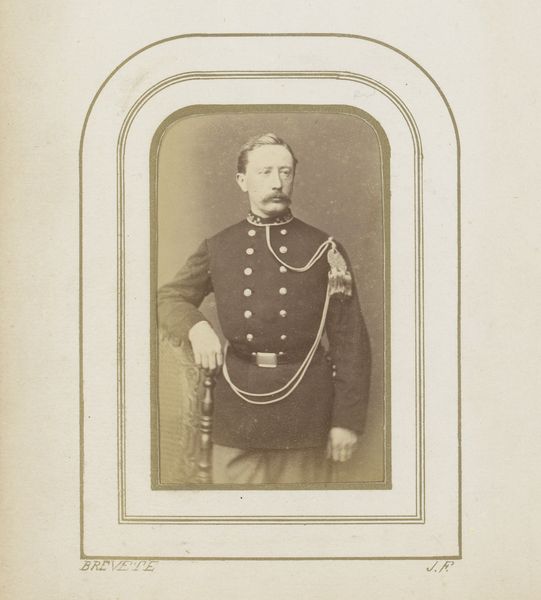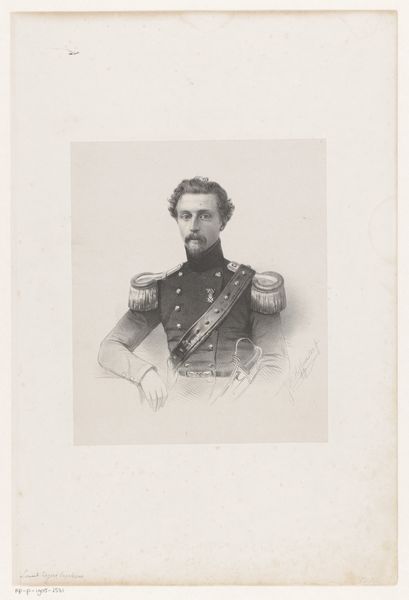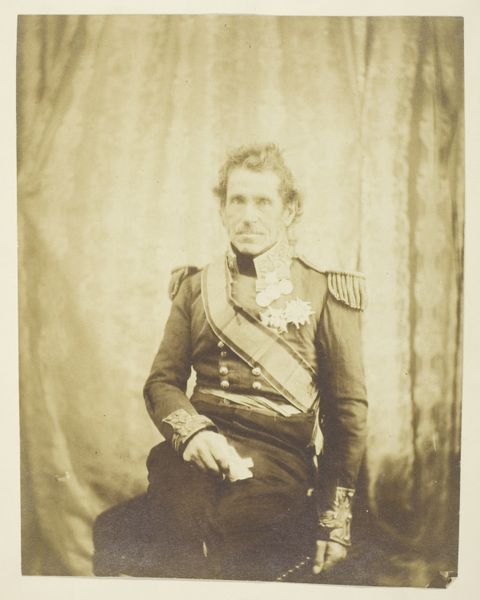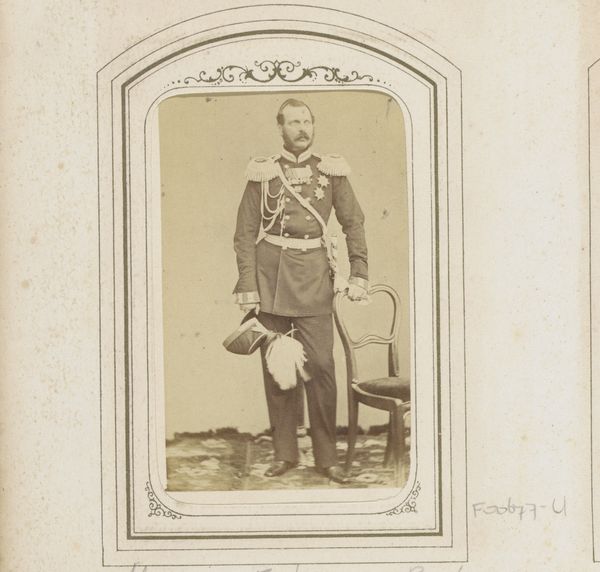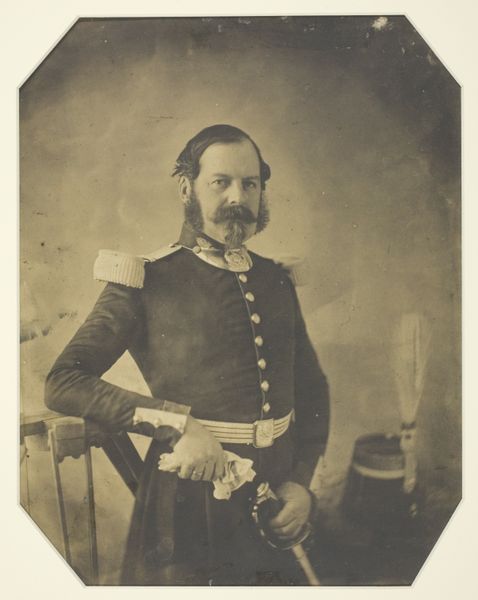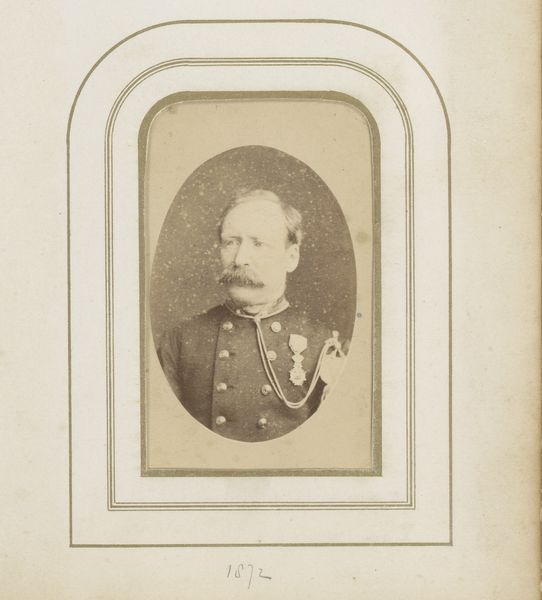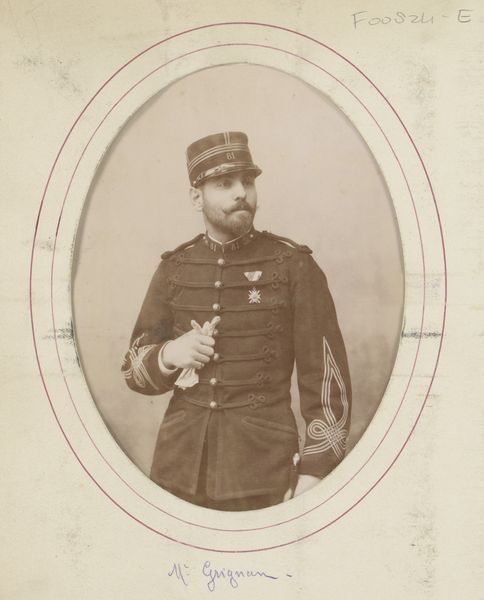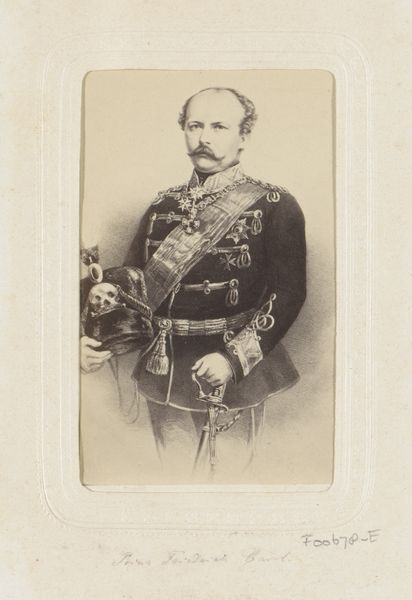
daguerreotype, photography
#
portrait
#
16_19th-century
#
daguerreotype
#
photography
#
historical photography
#
old-timey
#
19th century
#
realism
Dimensions: height 87 mm, width 53 mm
Copyright: Rijks Museum: Open Domain
Editor: So, this is "Portret van een man in uniform" by Ludwig Angerer, a daguerreotype from sometime between 1860 and 1880. The sepia tones give it this incredible sense of the past. What stories do you think it has to tell? Curator: Well, daguerreotypes themselves are powerful social documents. This image, created at a time of burgeoning industrialization and empire-building, reflects how portraiture became a tool for constructing identity and status. It was no longer limited to the wealthy elite. Look at the subject’s uniform; how might this specific military garb define him within the socio-political landscape of the time? Editor: That's a good point. It’s not just a portrait, but a representation of the subject’s position and affiliation. Would a person seeing it in that era automatically place him in a certain class or political alignment? Curator: Precisely. The uniform, expertly rendered through the sharp detail of the daguerreotype, communicates a direct, almost confrontational message about power and loyalty. What is absent is equally significant: consider who wasn’t being represented in these increasingly available forms of imagery. Who controlled their distribution and who could access these portraits? Editor: I hadn't thought about the absence in that way before. I was just caught up in the surface level, I suppose. Curator: Photographic representation, like portraiture throughout history, carries inherent biases based on economic and social forces. Even realism can be strategically curated. Editor: It gives me a lot to think about! This really makes me reconsider what "historical photography" really means, thank you for opening my eyes! Curator: You’re welcome! It’s always valuable to think about how cultural context shaped the way we consume and understand images.
Comments
No comments
Be the first to comment and join the conversation on the ultimate creative platform.
